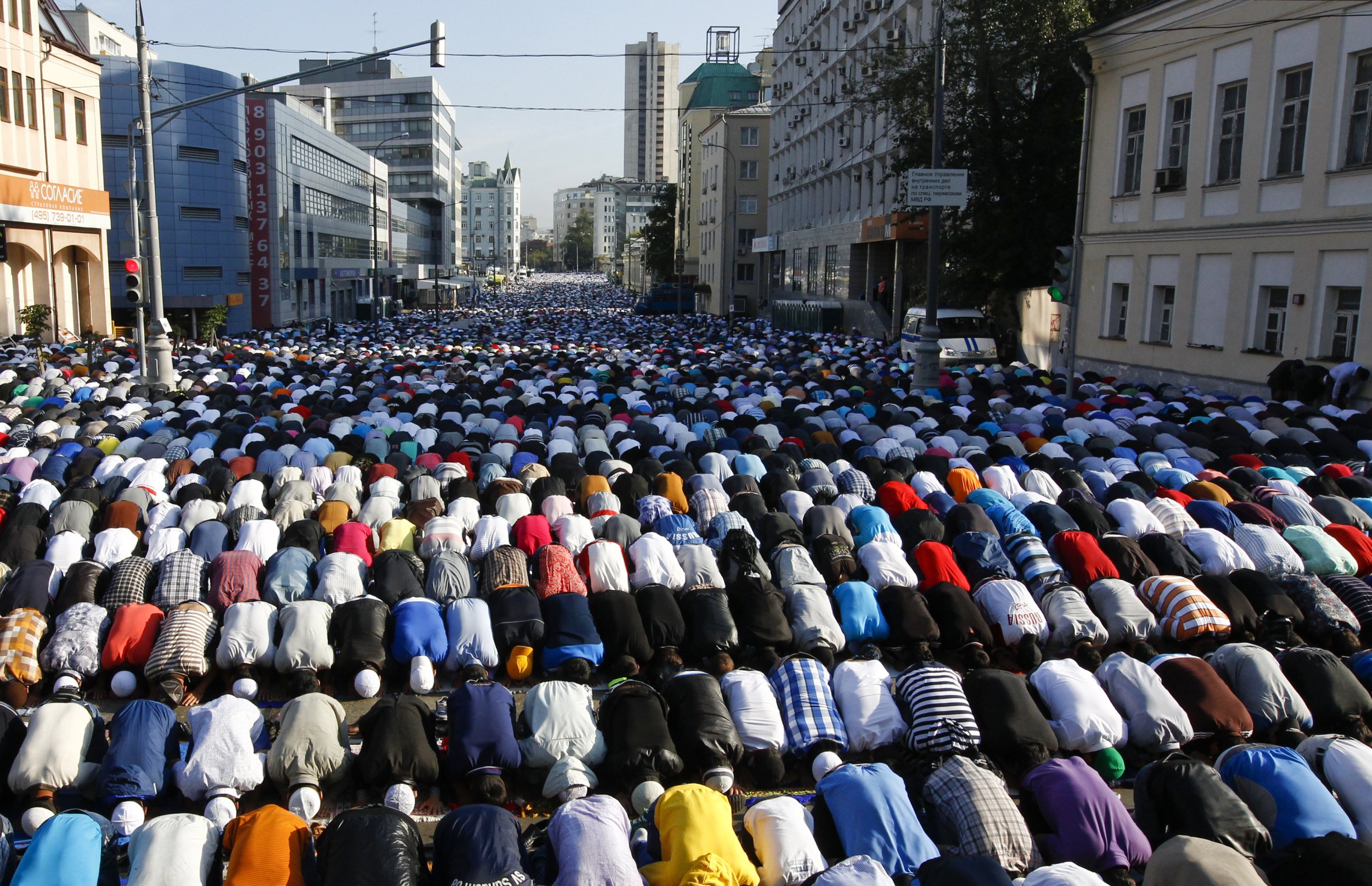Eid Mubarak 2013: Muslims Around The World Celebrate Eid Al-Fitr, The End Of Ramadan [PHOTOS]
Muslims around the world celebrated with prayer and food during the Eid al-Fitr festival, marking the end of Ramadan 2013 or the Islamic holy month of fasting. The annual holiday, which lasts for three days, marks of the anniversary of the Quran being revealed to the Prophet Muhammad.
The three-day festival, sometimes abbreviated as “Eid” or “Eid Mubarak,” marks the end of the month-long fasting during Ramadan, which began on July 8 this year. Eid al Fitr begins after the new crescent moon appears and falls on the first day of Shawwal, the tenth month in the Islamic lunar calendar typically when Muslims celebrate unity. During Eid, many join in Islamic prayer, known as salat while saying "Allahu Akbar," or "God is Great" and feasting.
Ramadan is an annual celebration for Muslims held during the ninth month of the 12-month Islamic calendar, starting after the sighting of the new moon. The holy month began this year on Monday, July 8, at sunset, or “rukyah,” when the moon is spotted. The celebration lasts for 29 or 30 days until the next new moon appears, which happened on Wednesday, Aug. 7. The month of fasting is celebrated by more than 1.5 billion Muslims around the world, including in the U.S., where there are nearly 2.6 million Muslims, according to the Pew Research Center.
The purpose of Ramadan is to focus on spirituality, praying more often and withholding any acts of violence during the fast. Many Muslims around the world are expected to participate -- with the exception of the elderly, sick and pregnant -- by wishing each other "Ramadan Kareem" or "Ramadan Mubarak."
For the end of Ramadan, Muslims celebrate Ed al-Fitr, which translated from Arabic into “breaking the fast.” Muslim families will exchange gives, sit down for meals and pray together for three days this Wednesday, Thursday and Friday.
Traditional greetings during Eid al-Fitr are “Eid Mubarak,” which means "Blessed Eid," and “Eid Said,” meaning "Happy Eid." Muslims also donate food, called “Zakat al-Fitr” or “charity of breaking the fast,” so that the poor can also celebrate the holiday.
During Ramadan, Muslims are expected to refrain from food and drink and abstain from smoking and sex each day during the celebration from dawn to dusk as one of the five pillars of Islam. The breaking of the fast, or iftaar, begins at dusk by eating dates during the month-long period. Some Muslims have slightly different variations and have broader definitions of practices during Ramadan.
The month-long fasting marks the anniversary of the Quran being revealed to the Prophet Mohammed.









© Copyright IBTimes 2025. All rights reserved.






















